Anyone paying attention to major events of the day in the United States and around the world would know that the basic social fabric is fraying from a toxic mix of ills — inequality, dislocation, polarization, environmental distress, scarce resources, and more. Signs abound that after decades of uneven but steady human progress, we are digging a deeper and muddier hole for ourselves. The principal reason for this pessimism is not the material facts of decline — we have lived through worse times before — but the crumbling consensus around how to overcome such crises. The outbreak of the COVID-19 pandemic is fast becoming the latest stress test for whether the social contract can hold.
The roadmap for climbing out of the trough should begin with the understanding that the rule of law is the sine qua non of more successful societies. Societies with strong rule of law have built-in mechanisms for mediating conflicts through open and inclusive debate, in which all voices are treated equally, and outcomes are perceived as fair and reasonable.
The graphs below show that strong rule of law is also associated with higher GDP per capita and better rates of basic health outcomes like infant and maternal mortality. Communities large and small that live in relative peace and prosperity generally are built on a foundation of laws that hold all individuals equal and accountable, protect fundamental rights, are openly adopted and enforced, and, when violated, fairly adjudicated by independent courts.

Rule of Law Trending Negative
Unfortunately, as documented by the latest findings of the World Justice Project’s Rule of Law Index, the rule of law is declining around the world for the third year in a row. The trends are widespread and persistent: The majority of countries that declined in the 2020 rule of law scores also deteriorated in the previous year, and weaker or stagnating performance occurred in the majority of countries in every region and across every income group. The graph below illustrates that a plurality of countries (28) declined both in the past year and over the past five years, as measured in average annual percentage terms.
Of particular concern is that countries experienced the biggest declines over the past year in the areas of fundamental rights (54 countries declined, 29 improved), constraints on government powers (52 declined, 28 improved), and absence of corruption (51 declined, 26 improved). These three factors of the World Justice Project (WJP) Index saw the worst performance globally over a five-year time period as well. In short, the key rule of law elements that undergird accountable governance, and relatedly, citizens’ trust in their leaders, are in retreat, in both established democracies like the United States, and in entrenched autocracies, from Russia to China to Venezuela. In this context, the rise of populist anger and social protests should come as little surprise.
Rule of Law Decliners Outnumber Improvers

Signs of progress
The news from the latest WJP Rule of Law Index is not all bad. Interestingly, in areas that measure affirmative responsibilities of government — such as providing civil justice, regulatory enforcement, and criminal justice — the five-year trends are positive. This suggests that more technical reforms and assistance are having some encouraging effects in helping governments deliver on their core duties to citizens.
On the other hand, the more political factors that measure various limitations on government powers — checks and balances, absence of corruption, open government, and fundamental rights — are in decline. Here is where it gets tricky: Societies need stronger civil society, independent media, and support for human rights and anti-corruption bodies to tackle these challenges, but governments are increasingly blocking these actors through manipulation, intimidation, and outright repression.
To prevent further deterioration, rule of law and human rights advocates and donors need to prioritize the generation of political will from above and pressure from below. Initiatives like the Open Government Partnership offer promising avenues for fostering public-private collaboration to ensure open government, access to justice, and anti-corruption policies take hold in specific countries governed by enlightened leaders. And the justice elements of the Sustainable Development Goals (Goal 16+) are helping to mainstream rule of law as an indispensable ingredient for ensuring development resources and priorities are managed equitably, especially for women and vulnerable populations.
Can the data be trusted?
In an era of growing skepticism toward science and evidence-based policymaking, it is worth interrogating where this data comes from and how is it compiled. The authors of the WJP Rule of Law Index started by identifying universal principles of the rule of law that go back to ancient codes of Hammurabi, Confucius, and Cicero. In the modern era, the Universal Declaration of Human Rights remains a high-water benchmark for articulating a suite of economic, social, political, and civil rights now enshrined in international treaty law.
After a series of consultations around the world, the WJP Index creators designed a set of eight factors (constraints on government powers, absence of corruption, open government, fundamental rights, order and security, regulatory enforcement, civil justice, criminal justice; a ninth factor, on informal justice, is not calculated) and 44 sub-factors that break down further into over 500 question-level variables. By setting forth a definition that is comprehensive enough to apply to all types of political regimes and cultures, yet clear enough to translate into multiple contexts and languages, the Index gets past the stale debate over what the rule of law means.
Anything worth protecting is worth measuring, as the saying goes. To evaluate performance of such a multi-faceted concept, the Index authors established a methodology based on a combination of household surveys and questionnaires of legal practitioners and scholars conducted at the national level, now covering 128 countries and jurisdictions representing approximately 90% of the world’s population. In the latest edition, the scores reflect valid responses from more than 130,000 households and over 4,000 legal practitioners vetted for their expertise in specific fields of law. Rather than relying on external experts, the Index collects assessments based on actual experience and perceptions of people living in each country, in effect holding up a mirror to a society’s adherence to these universal principles. This reduces bias in the data and allows for comparative evaluations based on a common standard.
Digging out of the hole
The good news is that for most countries with functioning rule of law systems, the backsliding is modest enough that it is not too late to turn things around. On the other hand, the gradual erosion of the rule of law dimensions, if not addressed, can lead to entrenched stagnation akin to the middle income trap faced by some developing economies. Strengthening free and fair elections, independent judges and prosecutors, and a free press are all critical to avoiding this scenario.
If history and current events teach us anything, however, there is nothing about strong rule of law societies that guarantees timely or appropriate course corrections. As the novel coronavirus crisis takes hold, we will learn more about how societies with stronger rule of law are able to balance competing demands of protecting public health and other vital government services with ensuring transparency, independent oversight, and human rights. Sustaining the rule of law is, at the end of the day, a fundamental societal choice between creating a culture of lawfulness for all citizens, even in bad times, or allowing strongman rule and power politics to prevail. The current evidence clearly warns us that the latter has the upper hand.
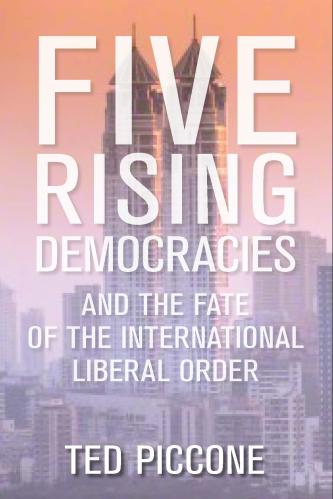
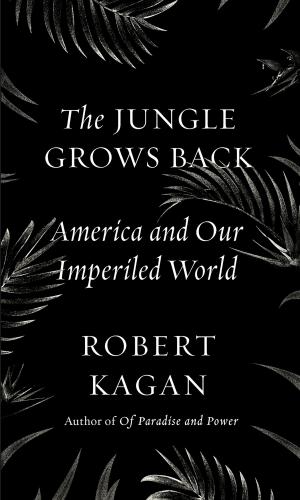
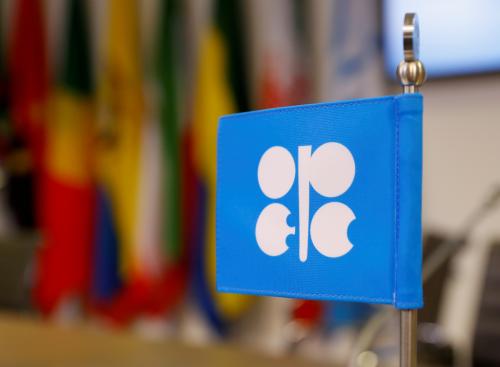

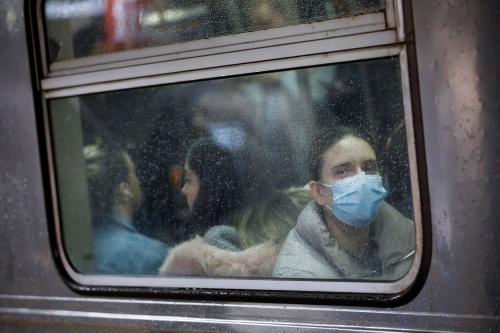


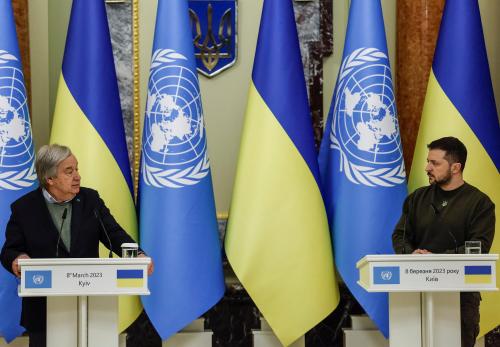
Commentary
The rule of law is under duress everywhere
March 17, 2020